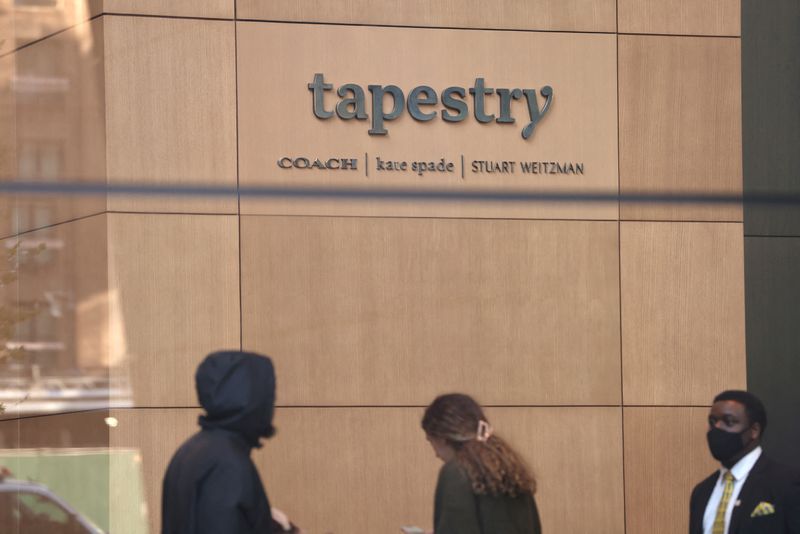By Siddharth Cavale
NEW YORK (Reuters) - The U.S. anti-trust trial over the $8.5 billion bid by luxury goods maker Tapestry (NYSE:TPR) to buy Capri concluded on Monday, with Tapestry lawyers citing an "intensely competitive" handbag market in defending against claims that consumers would face higher prices.
At the New York trial, the U.S. Federal Trade Commission sought to prove in its closing arguments that the deal to bring six brands - Tapestry's Coach , Kate Spade, and Stuart Weitzman with Capri's Versace, Jimmy Choo, and Michael Kors - into a single company would leave shoppers with fewer, more expensive handbags than if the companies were separate.
FTC counsel Abby Dennis tried to draw parallels between the multiple transportation methods to get to Washington D.C. from New York - such as buses, trains, planes and even helicopters - but how difficult it is for consumers to interchange between those options because of price limitations. She said Americans face the same challenges with handbags.
A U.S. federal judge will decide whether to block the merger that was announced in August 2023, or allow it to proceed. A decision could be expected anywhere between three weeks to three months, according to Tapestry.
"The judge... has an avalanche of material thrown at her and needs some time to think through it. You cannot say this one is in the bag for either of the parties," said James Weingarten (NYSE:WRI), a former FTC chief trial counsel, who now works in Washington D.C. at law firm Milbank.

Over seven days of evidentiary proceedings, lawyers for both sides spent considerable time focused on defining the so-called "accessible luxury" marketplace. While the FTC relied on an expert witness, economist Loren Smith, to evaluate the market, lawyers for Tapestry poked holes in the financial modeling and methodology used to define the market. Tapestry's lead counsel Lawrence Buterman on Monday requested the judge completely disregard the analysis.
"The FTC can't meet their burden under any standard," Buterman said in closing, asking the judge to allow the merger to proceed.